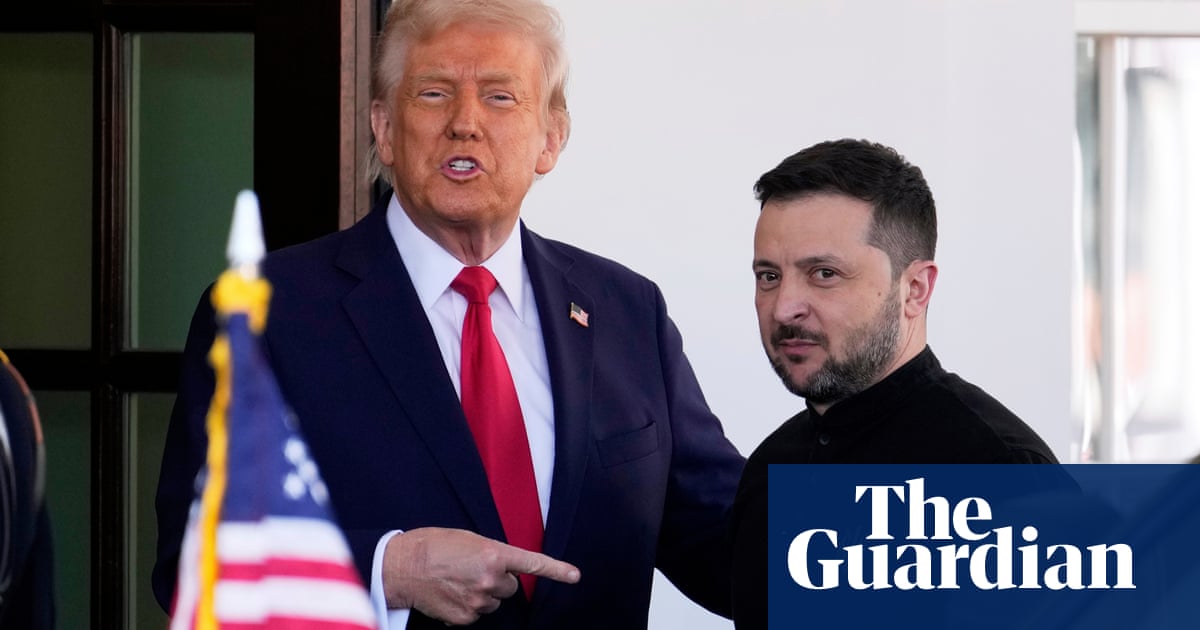The US andKyivhave signed an agreement to share revenues from the future sale of Ukrainian minerals and rare earths, sealing a deal that Donald Trump has said will provide an economic incentive for the US to continue to invest in Ukraine’s defense and its reconstruction after he brokers a peace deal with Russia.
The minerals deal, which has beenthe subject of tense negotiations for monthsand nearly fell through hours before it was signed, will establish a United States-Ukraine Reconstruction Investment Fund that the Trump administration has said will begin to repay an estimated $175bn in aid provided to Ukraine since the beginning of the war.
“This agreement signals clearly to Russia that the Trump Administration is committed to a peace process centered on a free, sovereign, and prosperousUkraineover the long term,” said Scott Bessent, the US treasury secretary, in a statement.
“President Trump envisioned this partnership between the American people and the Ukrainian people to show both sides’ commitment to lasting peace and prosperity in Ukraine. And to be clear, no state or person who financed or supplied the Russian war machine will be allowed to benefit from the reconstruction of Ukraine.”
Ukraine’s first deputy prime minister, Yulia Svyrydenko, confirmed in a social media post that she had signed the agreement on Wednesday.
“Together with the United States, we are creating the fund that will attract global investment into our country,” she wrote.
Key elements of the agreement – including the structure of the investment fund and how the revenues from the deal would be divided – were not made public immediately. Critics of the deal have said that the White House is seeking to take advantage of Ukraine by linking future aid to the embattled nation to a giveaway of the revenues from its resources.
It was unclear up until the last moment whether the US and Ukraine would manage to sign the deal, with Washington reportedly pressuring Ukraine to sign additional agreements, including on the structure of the investment fund, or to “go back home”.
Ukraine’s prime minister earlier had said he expected the country to sign the minerals deal with the US in “the next 24 hours” but reports emerged that Washington was insisting Kyiv sign three deals in total.
The Financial Times said Bessent’s team had told Svyrydenko, who was reportedly en route to Washington DC, to “be ready to sign all agreements, or go back home”.
Bessent later said the US was ready to sign though Ukraine had made some last-minute changes.
Reuters reported that Ukraine believed the two supplementary agreements – reportedly on an investment fund and a technical document – required more work.
The idea behind the deal was originally proposed by Ukraine, looking for ways to offer economic opportunities that might enticeDonald Trumpto back the country. But Kyiv was blindsided in January when Trump’s team delivered a document that would essentially involve handing over the country’s mineral wealth with little by way of return.
Since then, there have been various attempts to revise and revisit the terms of the deal, as well as a planned signing ceremony that was aborted after a disastrous meeting between Trump andVolodymyr Zelenskyyat the White House in February.
Earlier this month, it was revealed that the Ukrainian justice ministry had hired US law firm Hogan Lovells to advise on the negotiations over the deal, according to filings with the US Foreign Agents Registration Act registry.
The Ukrainian prime minister, Denys Shmyhal, on Wednesday described the deal as “truly a good, equal and beneficial international agreement on joint investments in the development and recovery of Ukraine”.
